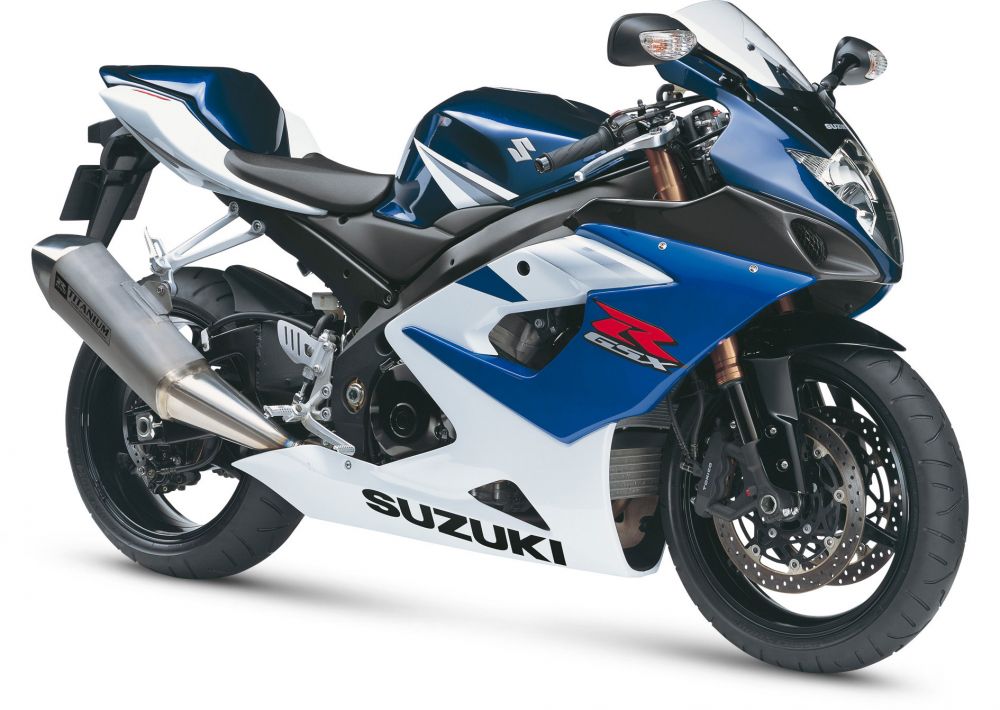
The 6 Greatest Superbikes You Can Buy For Under £5000
One of the great things about living life on two wheels is that supercar levels of performance can be yours for less than the price of cheap supermini. Here are six of the greatest machines on sale for under £5000 right now!
1. 2005 GSX-R 1000 K5
For some, the GSX-R 1000 K5 is considered to be the absolute pinnacle of the superbike. Released in 2005, the K5 dominated every group test, won at the Isle of Man TT and made all other competitors look a little bit dated. With an all-new chassis design, weight distribution was bang on perfect. It was arguably the first 1.0-litre bike to really handle like a 600cc, completely moving the game on dynamically. A clean and timeless design also ensured that the new Suzuki flew out of the showrooms.
However, it was the monstrous new K5 engine that was the real show stopper here. It replaced the the previous generation’s K4 989cc motor (by no means a bad engine, but lacking the top-end power of its rivals) and raised the capacity to 999cc. The end results were an incredible 176bhp and 82lb ft of torque which, when you consider that the bike only weighed 166kg, made this thing an absolute rocket ship.
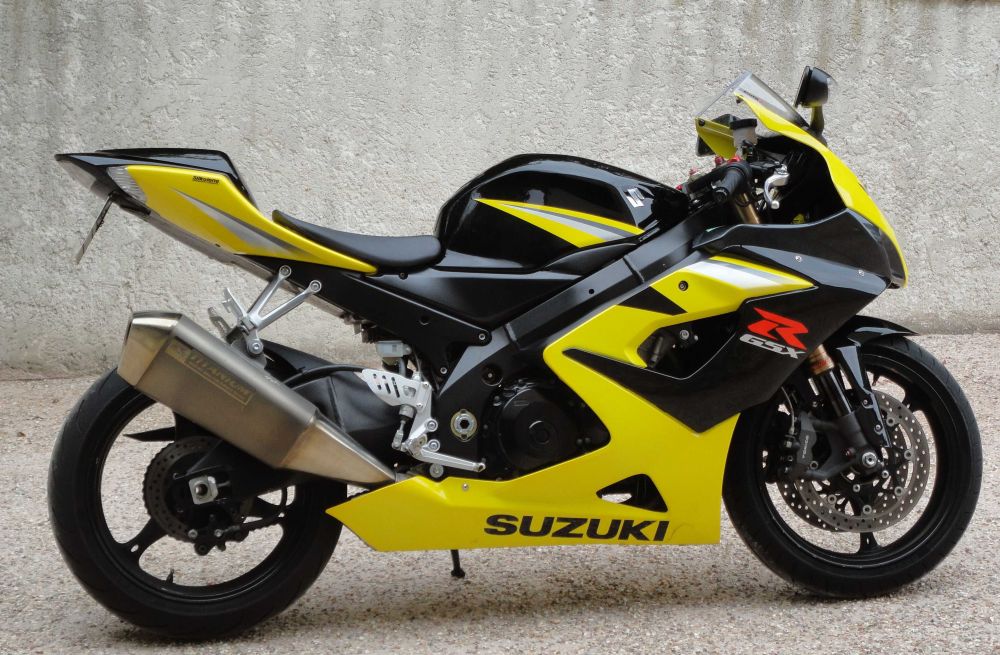
The K5 has also become something of an icon due to the unique period in which it was built. 2005 was the year that the superbike class really reached its peak. With high-revving engines, low weight and no electronic trickery at play, bikes like the K5 and ZX-10R were properly raw. Over the next few years the Fireblade, Suzuki and Kawasaki all got heavier and more bloated. And then with the release of the BMW S1000RR in 2010, gadgets like traction control and ABS were brought into the mainstream. Thus the K5 remains the ultimate analogue two-wheeled machine. Finding an unmolested example can be difficult due to the fact that Suzuki owners like to personalise their machines. Luckily there are usually plenty of bikes on sale at any one time.
2. 2004 Kawasaki ZX-10R
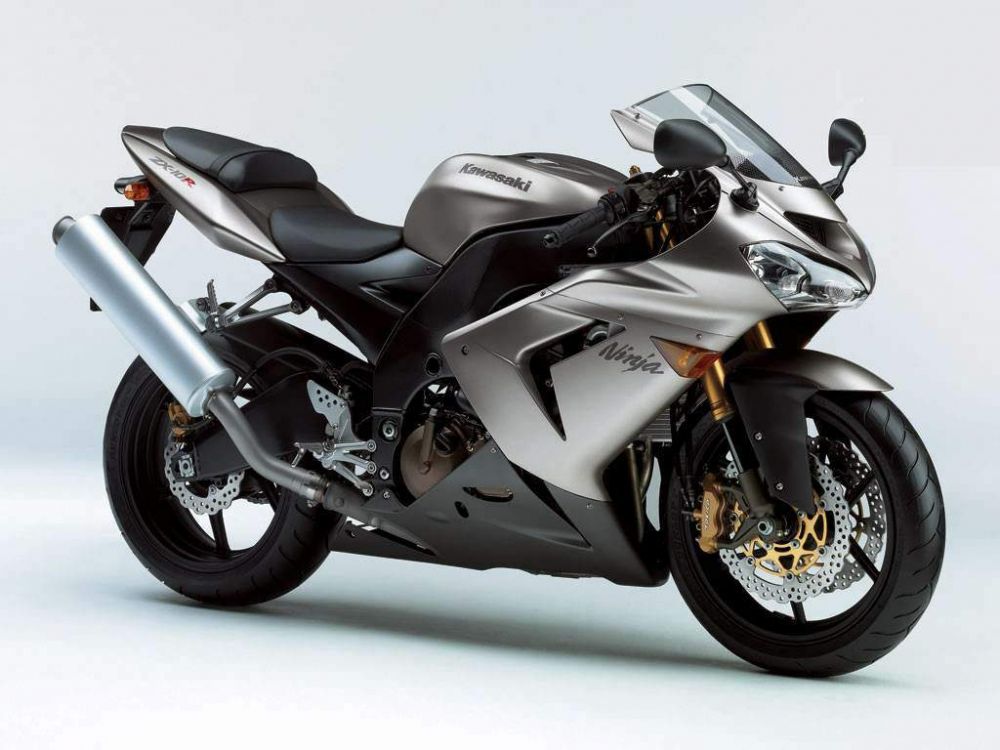
The 2004 Kawasaki ZX-10R gained a reputation in the bike world for being a bit of an animal. Well, a bit of animal would be an understatement. The Tokyo-based manufacturer has produced some insane bikes in the past, but the 2004 Ninja is by far the craziest (H2R aside). By shoving a rampant 154bhp engine into a chassis with an incredibly short 1385mm wheelbase, the ZX-10R was an absolute wheelie monster. Making things even scarier was Kawasaki’s decision to not fit a factory steering damper. As a result any mild crest set the bars wriggling.
The suspension didn’t help matters because it just accentuated the wheeling problem. The rear shock had too much rebound damping from the factory causing the bike to squat under hard acceleration, which in turn meant that the front would go light out of every corner; that’s not brilliant on bumpy British B-roads…
But these problems don’t make the Ninja a bad bike. Far from it. The engine is a smooth unit with enough torque (76lb ft helping the Kawasaki keep up with modern-day, high-revving superbikes. The short wheelbase also helps make the Ninja highly manoeuvrable, provided the road is smooth enough. If you do happen to buy one, we’d recommend getting the shock re-valved to help control the wheelies, and sticky modern rubber should help you put the power down safely. Green is the obvious choice, but we love the understated goldish grey colour. There are plenty of examples available for under £4000.
3. 2004 Honda Fireblade

The Honda Fireblade has always been the sensible man’s superbike. With class-leading build quality, a MotoGP-derived chassis and everyday usability the CBR1000RR really can do it all. The 2004 model was the first bike to have been designed without the input of superbike yoda Tadao Baba (the designer of the Legendary CBR900RR). But what Honda lost from Baba’s expertise, it gained from the lessons learned in MotoGP. The suspension linkage, electronic steering damper and mass centralisation of the Fireblade was all derived from the legendary Grand Prix racer, the RC211V.
The 154bhp 1000cc engine wasn’t a particularly exciting unit, but it was incredibly smooth and very tuneable - a power commander would easily release another 5bhp. The suspension design also ensured that the Fireblade could use all of its power all of the time. Something that can’t be said for its rivals - the ZX-10R in particular. Unfortunately, the Honda’s almost mythical stability gained the bike a bit of a reputation for being a bit ‘boring’. But we think that is an unfair label. Not all superbikes can be such usable road machines while still being impressive on track, and for that the Fireblade should be commended. Prices have crept up in recent years but good examples can still be found for under £5000.
4. 2004 Yamaha YZF-R1
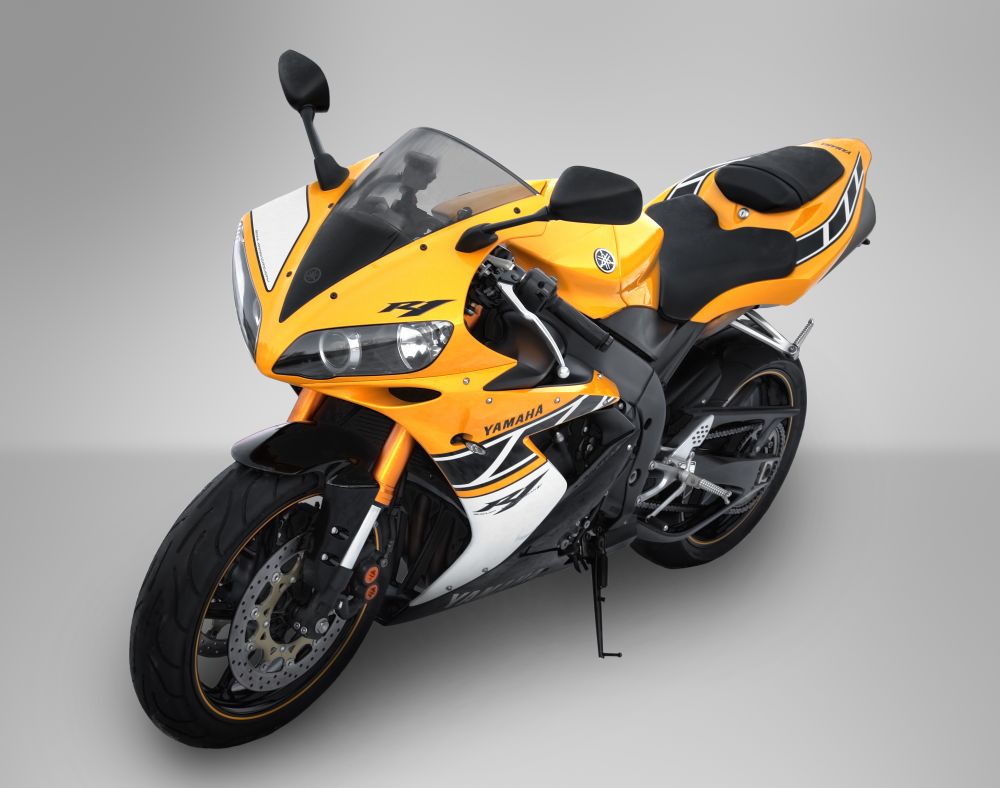
If there was a venn diagram for superbikes the YZF-R1 would be slap bang in the middle. It manages to blend the stability of the Honda, the power of the Suzuki and the on track capability of the ZX-10R. It doesn’t lead in any one category but it’s arguably the most complete package. The 164bhp 998cc motor is arguably more usable than its 2015 successor and the Deltabox chassis is perfectly set up for British roads.
For a 10-year-old bike the design still looks surprisingly fresh. In fact we’d go so far to say that we think the 2004 bike’s aesthetics are prettier than most modern superbikes. Quite amazing then that plenty of these things are available for under £4000. But we would recommend looking for a well maintained low milage example. If you want something a bit more special, then track down a 50th Anniversary edition in stunning ‘speed block’ yellow, like this one here.
5. 2008 KTM RC8
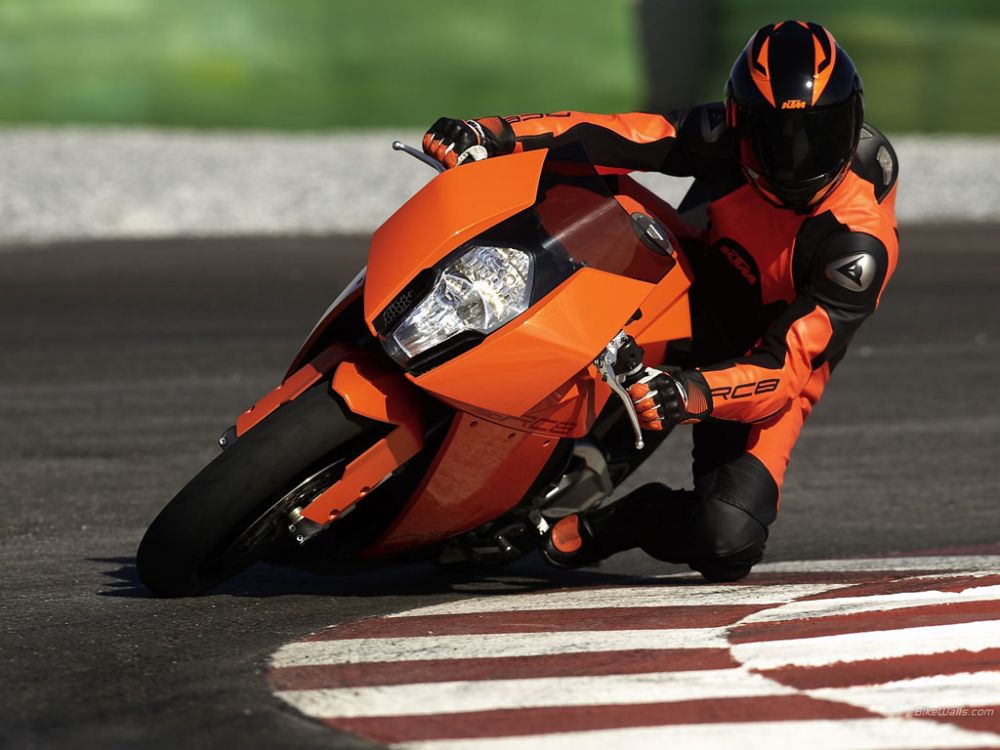
The RC8 was a new venture into the sports bike market for KTM. More used to building Dakar rally machines and class-leading adventure bikes, the RC8 was a risky move for the Austrian manufacturer. But we’re so glad it took that risk, because it resulted in one of the greatest bikes of the noughties.
Taking a different approach to other manufacturers the KTM managed to combine sports tourer ergonomics with superbike performance. The 152.2bhp V-twin engine was down on power compared to the competition but the huge 88.5lb ft of torque resulted in rapid real world pace. And the KTM was also more than capable on track, being a much easier bike to ride than Ducati’s V-twin, the 1098.
This brilliant compromise between usable on-road performance and impressive on-track dynamics came down to clever engineering and high quality components. WP suspension was standard front and rear and brembo callipers resulted in strong braking performance. The bike received small improvements in 2009 (capacity increased from 1148cc to 1195) but there are plenty of parts available through KTM’s power parts catalogue to bring the 2008 bike up to speed with modern rivals. Prices remain high for the newer models, but 2008 bikes occasionally dip below £5000.
6. 2004 Aprilia RSV-R Factory

If Japanese bikes aren’t exotic enough for you, take a look at the Aprilia RSV-R Factory. Like the KTM above, the Aprilia makes use of a torquey 76lb ft V-twin engine which gives the bike brilliant roll-on performance. Fuelling and throttle response was brilliant for the time and it’s still impressive today.
The Aprilia also had the dynamic performance to back up those exotic looks. The factory version of the bike was garnished with some high quality goodies. Radial-mount Brembo brakes were class leading in 2004, and the top-shelf Öhlins suspension was perfect for heavy track use. The Factory version also received drop dead gorgeous aluminium OZ wheels which were 30 per cent lighter than the standard bike’s items.
Upon its release, the bike received mixed reviews about its aesthetics. But time has been kind to the European machine and it now looks cleaner and more beautiful than most of the bikes currently on sale. Unbelievably, this piece of Italian exotica can be yours for less than £5000.



















